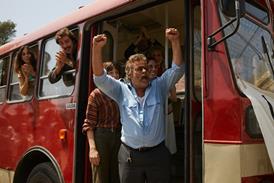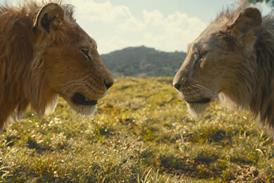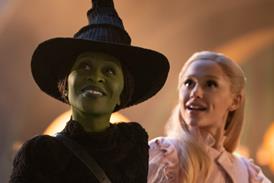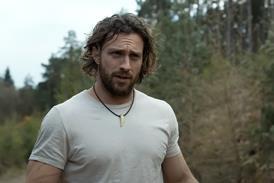Dir. George T. Butler.US. 2004. 130mins.
The 2004 US presidential election is widely considered oneof the most divisive in memory, mostly the result of polarity between those whosupport the US-led invasion of Iraq and those who consider it an error equivalentto that nation's adventure in Vietnam a generation ago.
A number of films, mostprominently Michael Moore's Fahrenheit9/11, have capitalised on that polarity and the election year fervour. Onrelease through THINKFilm on 300 screens in the US and Canada - an astoundingnumber for a documentary - Going Upriver issure to do the same. A historical account of Democrat challenger John Kerry'swartime service in Vietnam and his role as one of the leaders of the 1970s-eraVietnam Veterans Against The War (VVAW), the film is a profile of courageousdissent during wartime.
The film will likely get aboost from the strong performance delivered by Kerry in the Sept 30presidential debate, a performance that echoed the younger Kerry's oratoricalprowess: it opened in the US to just under $0.3m from 163 screens.
Its DVD release may be oneof the fastest-following ever, althoughsell-through will rest on a positive outcome for the challenger. Similarly,prospects beyond North America will hinge on a Kerry victory. A Bush victorywould make the prospect of watching GoingUpriver more than most could bear.
Film-maker George T Butlerhas declared that Going Upriver isnot a campaign film - in that it was not financed by the Kerry campaign - butits agenda is readily apparent, right down to the name of the project'sproduction entity, Swiftboat Films.
As followers of the electionknow, the Kerry campaign has pointedly played up their man's well-decoratedNavy service record as commander of a "swift boat" against George W. Bush'sless meritorious contribution in the Air National Guard. In response, a groupcalling itself the Swiftboat Veterans For Truth questioned Kerry's serviceconduct, the deservedness of his medals and, more potently, his patriotism.
As a film-maker, Butler isbest-known for his documentary PumpingIron, which launched the career of Arnold Schwarzenegger. But Butler hadbeen a journalist and photographer long before that; he has known Kerry for 40years and has followed his career since Kerry's return from Vietnam and hiswork with the VVAW (they co-authored a book about Vietnam veterans,
Interviews with Kerry'sfellow servicemen, including the sailor whose life Kerry saved, and with VVAWpeers, project an image of strength under fire that is political gold. It's acomplete repudiation of claims against Kerry's military past.
As to the question ofKerry's patriotism, it is addressed in the film's stand-out sequence. At theheight of the VVAW protest, which saw thousands of veterans camped out inWashington's Mall, the Senate Foreign Relations Committee examining the issueof prolonged US involvement in Vietnam asked Kerry to address it. Dressed inhis combat fatigues, the 27-year-old Kerry delivered a statement that is asastonishing in its frankness - the war was still being pursued -- as it is inits clarity. "How do you ask a man to be the last man to die in Vietnam' How doyou ask a man to be the last man to die for a mistake'"
With US casualties mountingin Iraq, with the justification for invasion in tatters and the situation onthe ground increasingly unstable, these questions again hold immense resonance.
Prod co: SwiftboatFilms
Int'l sales: Films Transit
Prod: George T Butler
Scr: Joe Dorman
Cine: Sandi Sissel
Ed: Melody London, Tim Squyres
Mus: Philip Glass
Nar: Ben Affleck


















No comments yet